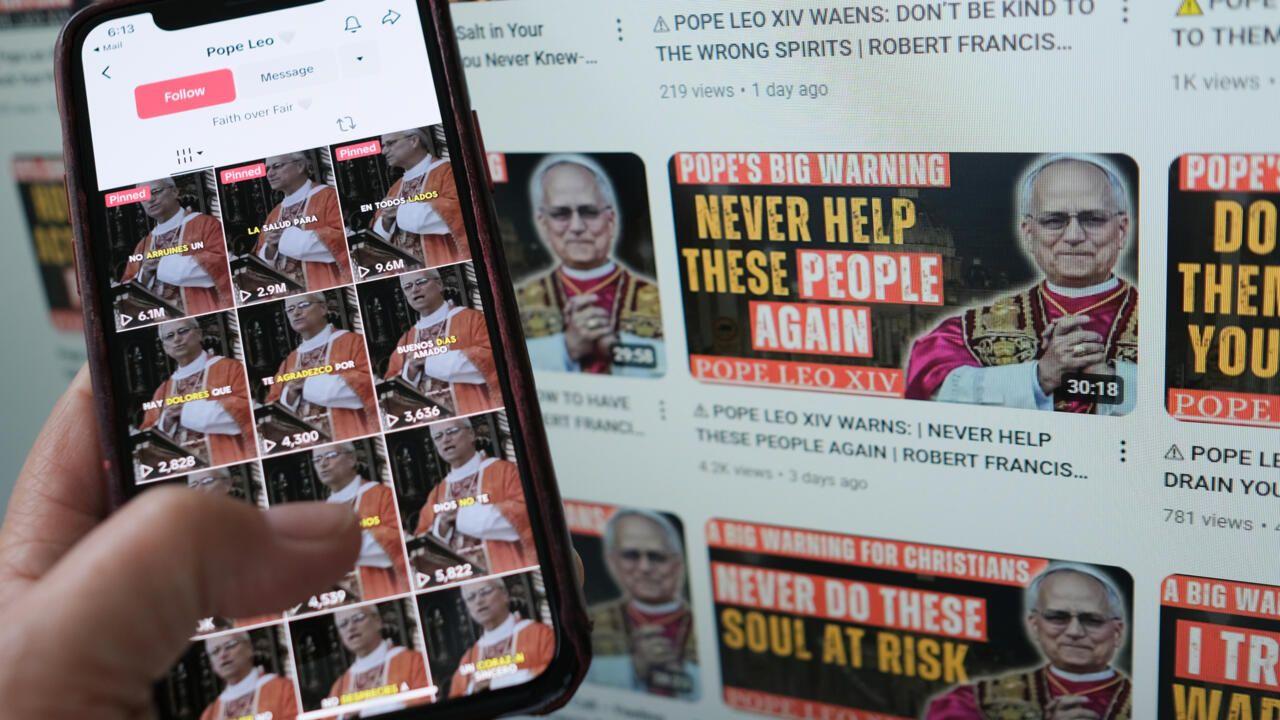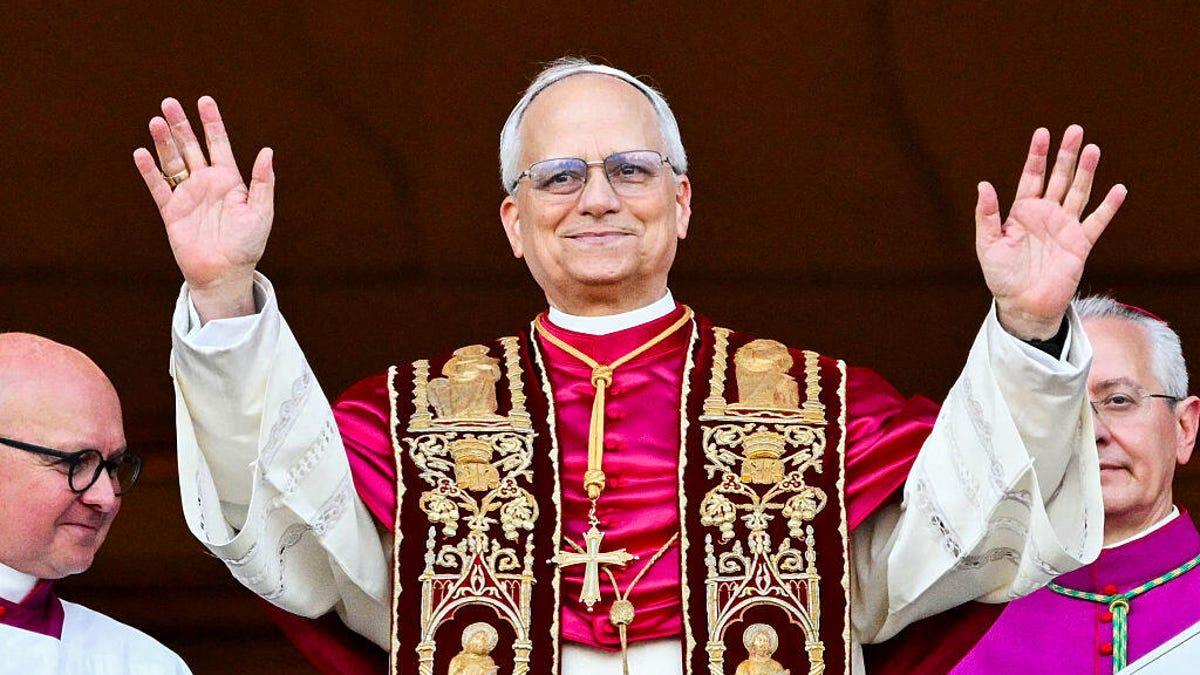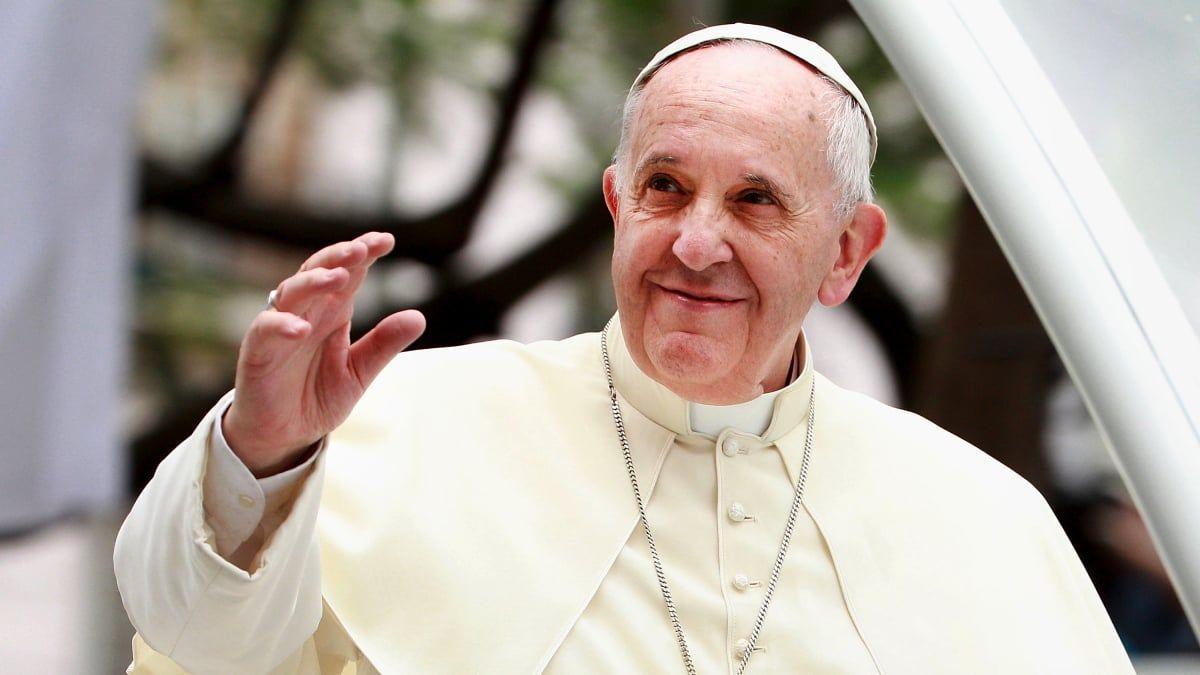AI-Generated Pope Sermons Flood Social Media, Raising Concerns About Misinformation
2 Sources
2 Sources
[1]
AI-generated Pope sermons flood YouTube, TikTok
Washington (AFP) - AI-generated videos and audios of Pope Leo XIV are populating rapidly online, racking up views as platforms struggle to police them. An AFP investigation identified dozens of YouTube and TikTok pages that have been churning out AI-generated messages delivered in the pope's voice or otherwise attributed to him since he took charge of the Catholic Church last month. The hundreds of fabricated sermons and speeches, in English and Spanish, underscore how easily hoaxes created using artificial intelligence can elude detection and dupe viewers. "There's natural interest in what the new pope has to say, and people don't yet know his stance and style," said University of Washington professor emeritus Oren Etzioni, founder of TrueMedia.org, a nonprofit focused on fighting deepfakes. "A perfect opportunity to sow mischief with AI-generated misinformation." After AFP presented YouTube with 26 channels posting predominantly AI-generated pope content, the platform terminated 16 of them for violating its policies against spam, deceptive practices and scams, and another for violating YouTube's terms of service. "We terminated several channels flagged to us by AFP for violating our Spam policies and Terms of Service," spokesperson Jack Malon said. The company also booted an additional six pages from its partner program allowing creators to monetize their content. TikTok similarly removed 11 accounts that AFP pointed out -- with over 1.3 million combined followers -- citing the platform's policies against impersonation, harmful misinformation and misleading AI-generated content of public figures. - 'Chaotic uses' - With names such as "Pope Leo XIV Vision," the social media pages portrayed the pontiff supposedly offering a flurry of warnings and lessons he never preached. But disclaimers annotating their use of AI were often hard to find -- and sometimes nonexistent. On YouTube, a label demarcating "altered or synthetic content" is required for material that makes someone appear to say something they did not. But such disclosures only show up toward the bottom of each video's click-to-open description. A YouTube spokesperson said the company has since applied a more prominent label to some videos on the channels flagged by AFP that were not found to have violated the platform's guidelines. TikTok also requires creators to label posts sharing realistic AI-generated content, though several pope-centric videos went unmarked. A TikTok spokesperson said the company proactively removes policy-violating content and uses verified badges to signal authentic accounts. Brian Patrick Green, director of technology ethics at Santa Clara University, said the moderation difficulties are the result of rapid AI developments inspiring "chaotic uses of the technology." Many clips on the YouTube channels AFP identified amassed tens of thousands of views before being deactivated. On TikTok, one Spanish-language video received 9.6 million views while claiming to show Leo preaching about the value of supportive women. Another, which carried an AI label but still fooled viewers, was watched some 32.9 million times. No video on the pope's official Instagram page has more than 6 million views. Experts say even seemingly harmless fakes can be problematic especially if used to farm engagement for accounts that might later sell their audiences or pivot to other misinformation. The AI-generated sermons not only "corrode the pope's moral authority" and "make whatever he actually says less believable," Green said, but could be harnessed "to build up trust around your channel before having the pope say something outrageous or politically expedient." The pope himself has also warned about the risks of AI, while Vatican News called out a deepfake that purported to show Leo praising Burkina Faso leader Ibrahim Traore, who seized power in a 2022 coup. AFP also debunked clips depicting the pope, who holds American and Peruvian citizenships, criticizing US Vice President JD Vance and Peru's President Dina Boluarte. "There's a real crisis here," Green said. "We're going to have to figure out some way to know whether things are real or fake."
[2]
AI-generated Pope sermons flood YouTube, TikTok
With names such as "Pope Leo XIV Vision," the social media pages portrayed the pontiff supposedly offering a flurry of warnings and lessons he never preached. But disclaimers annotating their use of AI were often hard to find and sometimes nonexistent. On YouTube, a label demarcating "altered or synthetic content" is required for material that makes someone appear to say something they did not. But such disclosures only show up toward the bottom of each video's click-to-open description.AI-generated videos and audios of Pope Leo XIV are populating rapidly online, racking up views as platforms struggle to police them. An AFP investigation identified dozens of YouTube and TikTok pages that have been churning out AI-generated messages delivered in the pope's voice or otherwise attributed to him since he took charge of the Catholic Church last month. The hundreds of fabricated sermons and speeches, in English and Spanish, underscore how easily hoaxes created using artificial intelligence can elude detection and dupe viewers. "There's natural interest in what the new pope has to say, and people don't yet know his stance and style," said University of Washington professor emeritus Oren Etzioni, founder of TrueMedia.org, a nonprofit focused on fighting deepfakes. "A perfect opportunity to sow mischief with AI-generated misinformation." After AFP presented YouTube with 26 channels posting predominantly AI-generated pope content, the platform terminated 16 of them for violating its policies against spam, deceptive practices and scams, and another for violating YouTube's terms of service. "We terminated several channels flagged to us by AFP for violating our Spam policies and Terms of Service," spokesperson Jack Malon said. The company also booted an additional six pages from its partner program allowing creators to monetize their content. TikTok similarly removed 11 accounts that AFP pointed out -- with over 1.3 million combined followers -- citing the platform's policies against impersonation, harmful misinformation and misleading AI-generated content of public figures. 'Chaotic uses' With names such as "Pope Leo XIV Vision," the social media pages portrayed the pontiff supposedly offering a flurry of warnings and lessons he never preached. But disclaimers annotating their use of AI were often hard to find -- and sometimes nonexistent. On YouTube, a label demarcating "altered or synthetic content" is required for material that makes someone appear to say something they did not. But such disclosures only show up toward the bottom of each video's click-to-open description. A YouTube spokesperson said the company has since applied a more prominent label to some videos on the channels flagged by AFP that were not found to have violated the platform's guidelines. TikTok also requires creators to label posts sharing realistic AI-generated content, though several pope-centric videos went unmarked. A TikTok spokesperson said the company proactively removes policy-violating content and uses verified badges to signal authentic accounts. Brian Patrick Green, director of technology ethics at Santa Clara University, said the moderation difficulties are the result of rapid AI developments inspiring "chaotic uses of the technology." Many clips on the YouTube channels AFP identified amassed tens of thousands of views before being deactivated. On TikTok, one Spanish-language video received 9.6 million views while claiming to show Leo preaching about the value of supportive women. Another, which carried an AI label but still fooled viewers, was watched some 32.9 million times. No video on the pope's official Instagram page has more than 6 million views. Experts say even seemingly harmless fakes can be problematic especially if used to farm engagement for accounts that might later sell their audiences or pivot to other misinformation. The AI-generated sermons not only "corrode the pope's moral authority" and "make whatever he actually says less believable," Green said, but could be harnessed "to build up trust around your channel before having the pope say something outrageous or politically expedient." The pope himself has also warned about the risks of AI, while Vatican News called out a deepfake that purported to show Leo praising Burkina Faso leader Ibrahim Traore, who seized power in a 2022 coup. AFP also debunked clips depicting the pope, who holds American and Peruvian citizenships, criticizing US Vice President JD Vance and Peru's President Dina Boluarte. "There's a real crisis here," Green said. "We're going to have to figure out some way to know whether things are real or fake."
Share
Share
Copy Link
AI-generated videos and audios of Pope Leo XIV are rapidly spreading on YouTube and TikTok, highlighting the challenges of detecting and moderating AI-created content.
AI-Generated Pope Content Proliferates on Social Media
In a startling development, artificial intelligence (AI) generated videos and audios purporting to be sermons by Pope Leo XIV have flooded popular social media platforms YouTube and TikTok. An investigation by AFP has uncovered dozens of pages on these platforms that have been producing AI-generated messages in the pope's voice or attributed to him since he assumed leadership of the Catholic Church last month
1
2
.
Source: France 24
Scale and Impact of AI-Generated Content
The investigation revealed hundreds of fabricated sermons and speeches in both English and Spanish, highlighting the ease with which AI-created hoaxes can evade detection and mislead viewers. Some of these AI-generated videos have garnered significant attention, with one Spanish-language video on TikTok receiving 9.6 million views and another, despite carrying an AI label, amassing 32.9 million views
1
2
.Platform Response and Moderation Challenges
In response to AFP's findings, YouTube terminated 16 channels for violating its policies against spam, deceptive practices, and scams. The platform also removed an additional channel for violating its terms of service and excluded six pages from its partner program that allows content monetization
1
.TikTok took similar action, removing 11 accounts with over 1.3 million combined followers that were flagged by AFP. The platform cited violations of its policies on impersonation, harmful misinformation, and misleading AI-generated content of public figures
1
2
.Labeling and Disclosure Issues
Both YouTube and TikTok require creators to label posts containing realistic AI-generated content. However, the investigation found that these disclaimers were often difficult to locate or entirely absent. On YouTube, labels indicating "altered or synthetic content" are only visible in the video description, which users must click to open
1
2
.Related Stories
Expert Opinions and Concerns

Source: ET
Experts have raised alarms about the potential consequences of this trend. Oren Etzioni, founder of TrueMedia.org, noted that the public's natural interest in a new pope's stance and style creates "a perfect opportunity to sow mischief with AI-generated misinformation"
1
.Brian Patrick Green, director of technology ethics at Santa Clara University, attributed the moderation difficulties to rapid AI developments inspiring "chaotic uses of the technology"
1
2
.Broader Implications and Future Challenges
The proliferation of AI-generated content raises concerns beyond immediate misinformation. Experts warn that even seemingly harmless fakes can be problematic, potentially being used to build trust before pivoting to more harmful content. Green emphasized that these AI-generated sermons not only "corrode the pope's moral authority" but also "make whatever he actually says less believable"
1
2
.The pope himself has warned about the risks of AI, and Vatican News has called out a deepfake showing Leo praising a controversial political figure. AFP has also debunked clips depicting the pope criticizing political leaders
1
2
.As the line between real and fake content becomes increasingly blurred, Green concludes, "There's a real crisis here. We're going to have to figure out some way to know whether things are real or fake"
1
2
.References
Summarized by
Navi
[1]
Related Stories
Pope Francis Warns Davos Summit of AI's Potential to Exacerbate 'Crisis of Truth'
23 Jan 2025•Policy and Regulation

AI Deepfakes Impersonate Pastors to Scam Congregations Across the United States
05 Jan 2026•Entertainment and Society

Pope Leo XIV Rejects AI Avatar, Warns of Technology's Impact on Humanity
19 Sept 2025•Technology

Recent Highlights
1
Google Gemini 3.1 Pro doubles reasoning score, beats rivals in key AI benchmarks
Technology

2
ByteDance's Seedance 2.0 AI video generator triggers copyright infringement battle with Hollywood
Policy and Regulation

3
ChatGPT cracks decades-old gluon amplitude puzzle, marking AI's first major theoretical physics win
Science and Research





